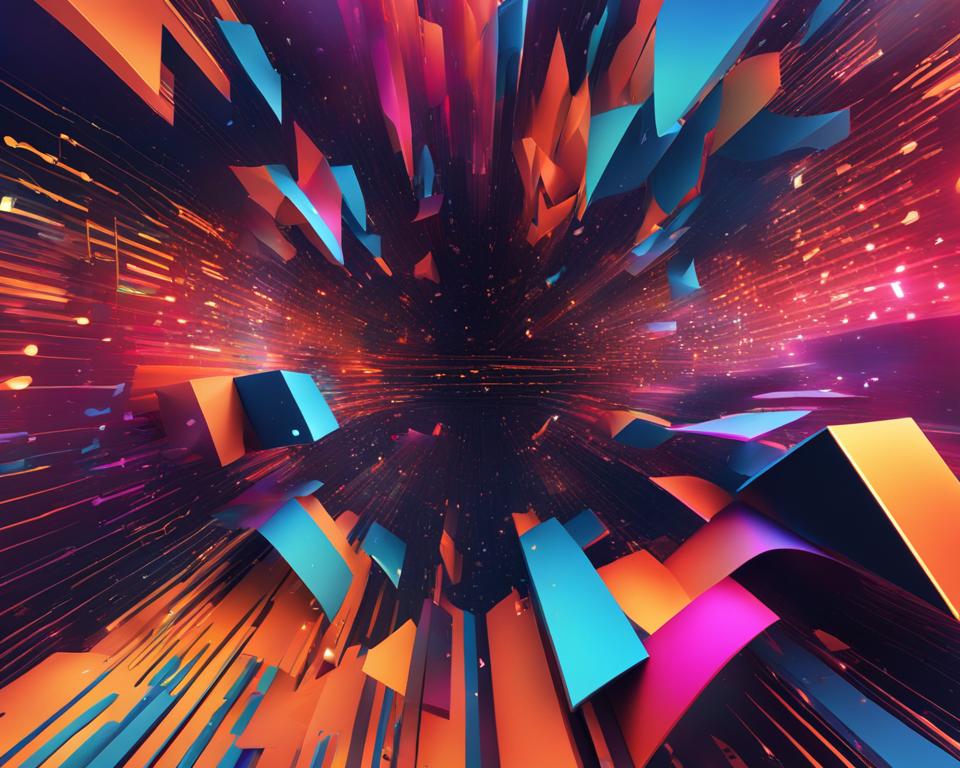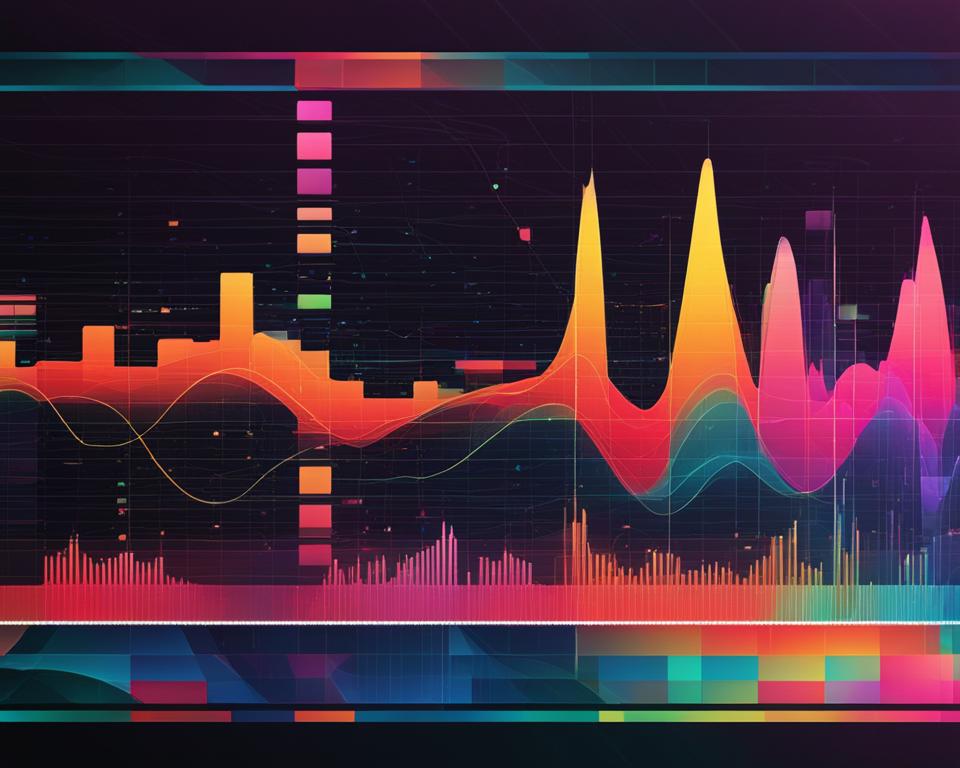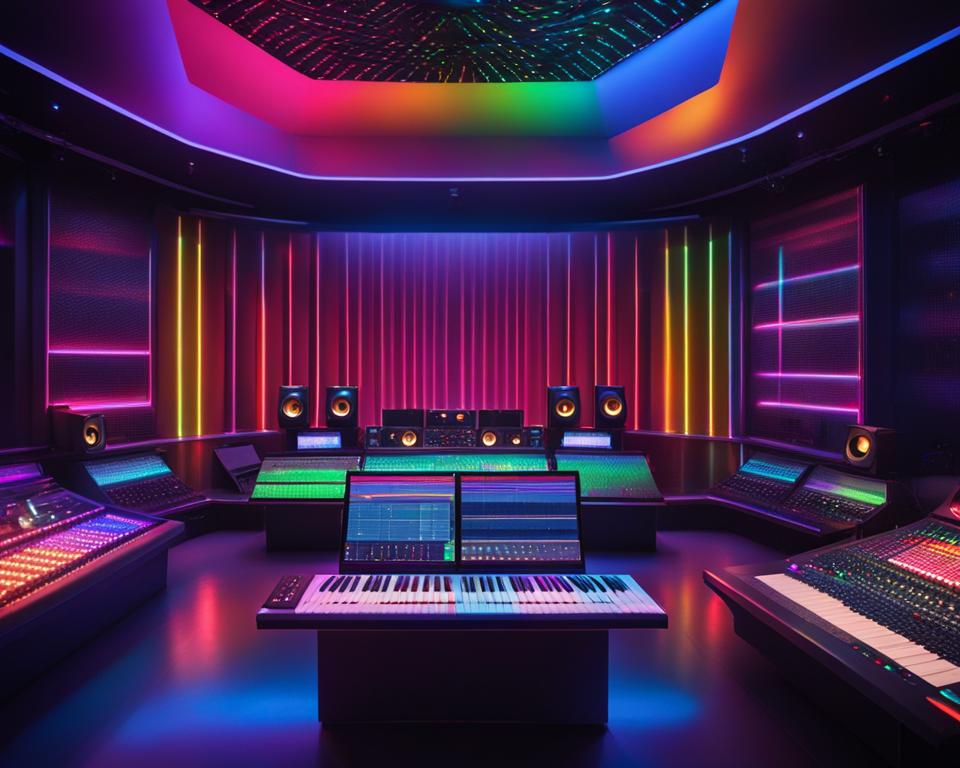As technology continues to shape the world around us, it’s no surprise that music consumption has transformed, too. AI-powered music recommendation systems have become increasingly popular, personalized to each listener’s taste preferences, and are changing listening habits in various ways.
With the help of artificial intelligence and machine learning, recommendations are no longer limited to simple genre classifications. AI algorithms analyze listening patterns and suggest personalized music recommendations, enhancing the music discovery experience.
This article will explore the evolution of AI in music creation and production, how AI algorithms enhance music, the influence of AI music recommendation on artists and the industry, and the potential of AI-driven music in the future. So, whether you’re already a fan of AI-powered music recommendations or are curious about its impact, this article is for you.
Join me as we embark on this journey to discover the latest advancements in technology and its impact on the world of music.
The Evolution of AI in Music Creation and Production
Artificial intelligence music recommendation system has paved the way for the evolution of AI in music creation and production. With the use of machine learning for music recommendations, AI algorithms can compose and produce music, exploring innovative techniques and technologies used in the music industry.
The impact of AI on music production has been huge, providing professional sound quality to music without the need for external input. With the help of artificial intelligence, creators can produce music faster and efficiently, opening up new possibilities in music production.
| Pros | Cons |
|---|---|
| – Faster music production | – Lesser creative input |
| – Provides consistency in sound quality | – Less personal touch |
| – Removes the need for an external composer | – Might lead to an oversupply of music |
The introduction of AI algorithms in music production has led to both advantages and disadvantages, providing benefits for creators while also presenting significant challenges.
The next section will explore how AI algorithms revolutionize music and enhance its quality and sound.
Revolutionizing Music: How AI Algorithms Enhance Music
Artificial intelligence and machine learning technologies have revolutionized the music industry, making it easier for music enthusiasts to discover new music. AI algorithms analyze patterns and data to generate unique compositions and provide intelligent suggestions. Advanced music recommendation systems powered by AI have become increasingly popular, providing personalized music recommendations to listeners based on their preferences.
AI algorithms have enhanced the quality and sound of music by providing intelligent suggestions to musicians and music producers. These suggestions help to create a unique blend of diverse music styles and sounds. The use of AI algorithms ensures that everything from melodies to instrumental accompaniments are of high quality and diverse.
Artificial intelligence also plays a critical role in creating personalized music recommendations. Using intelligent algorithms, AI music recommendation systems analyze a listener’s listening habits and music preferences to suggest songs that they will enjoy. This ensures that every listener can discover new music that meets their unique tastes. AI music recommendation technology provides an excellent opportunity for music enthusiasts to explore new genres and artists they may not have found otherwise.
The Influence of AI Music Recommendation on Artists and the Industry
With the rise of AI-assisted music discovery, personalized music recommendations have become increasingly prevalent, leading to significant changes in artists’ career trajectories and the music industry as a whole.
Artists now face the challenge of adapting to AI-driven algorithms to optimize their music for intelligent suggestions and personalized music recommendations. This may necessitate changes in their musical styles, genres, and approaches.
On the other hand, AI music recommendation has given up-and-coming artists more exposure through digital platforms and algorithms that identify their music as similar to popular artists. This exposure leads to increased plays and streams, which can potentially launch their careers.
The music industry has also experienced significant changes due to AI music recommendation. Record labels can now use data analytics to identify emerging trends and unearth new talent. Streaming platforms can provide more personalized music recommendations, leading to increased listener satisfaction and loyalty.
“AI music recommendation has dramatically influenced the way artists and listeners discover new music.”
The potential for AI-assisted music discovery has created ethical implications for both the music industry and listeners. Despite the benefits of intelligent music suggestions, there are concerns regarding the potential for AI-driven monopolization of music discovery and the impact on diversity and creativity within the music industry.
As AI technology continues to advance, the influence of AI music recommendation on artists and the music industry will continue to evolve, reshaping the landscape of the music industry in new, innovative ways.
The Future Potential of AI-Driven Music
As AI technology continues to evolve, the future potential of AI-driven music is immense. With machine learning for music recommendations, automated music recommendations are becoming more advanced, providing listeners with intelligent suggestions for personalized music experiences.
Smart music recommendation algorithms will be the driving force behind the future of music consumption, helping listeners discover new artists, tracks, and genres that align with their preferences. These algorithms will analyze vast amounts of data to suggest songs, playlists, and even concerts that listeners may be interested in.
However, while the benefits of AI music recommendation are clear, ethical considerations must also be taken into account. As the use of AI in music becomes more prevalent, questions surrounding intellectual property, ownership, and creative control must be addressed to ensure fairness and transparency for all.
Additionally, as AI-driven music becomes more mainstream, the implications for the music industry are significant. The need for human interaction in the creation and production of music may decrease, and artists may need to adapt to suit the preferences of AI algorithms to remain relevant.
Overall, the future potential of AI-driven music is both exciting and uncertain. As technology continues to progress, we can expect to see continued innovation in music creation, production, and recommendation. However, it is essential to approach this evolution with caution and consider the ethical implications to ensure a fair and sustainable future for the music industry.




